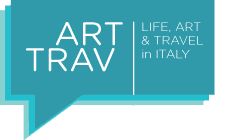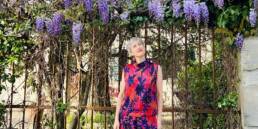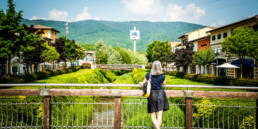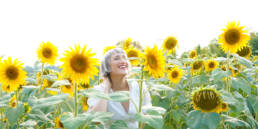The first wintery days are upon us and with them, the first sniffles. Inevitably, my interns are all sick and children in schools are sneezing all over the place. We are into the joys of the winter season, which includes battling bugs in our bodies, even when the mosquitoes outside haven’t died off yet (they seem to never fully go away, ugh!). For me, this is the time to make sure I stick to my healthy regimen at all costs, and luckily, living in Italy makes it pretty easy for me to do this. Recently I’ve gotten a few questions about healthcare for expats in Italy from people considering the move, and between that and my runny-nosed interns, I thought it was high time to write about how I stay healthy in Italy, hoping some of these facts and tips can help new arrivals.

The healthcare system in Italy
Italy has a national public healthcare system that guarantees service to everyone, and as a Canadian, that’s really important to me. To be able to register for it, you need your foreigners’ permit of stay and to be a registered resident in your city (residenza, which you register at your commune). Note that this does not apply to study abroad students, who must come with a third party insurance or pay for the national service.
Papers in hand, you go to your local SSN (servizio sanitario nazionale) office and get registered in the healthcare system and choose a primary doctor (family doctor) who you can visit without cost. There is also a private care option here, so having private insurance gives you reasonable access to this additional care possibility that can be useful for speedier or simply optional services. In addition to your regular doctor and periodic screening type things that are free, specialists and tests your doctor refers you to involve a co-payment (specialists cost 36 euros in Tuscany, for example); in addition, the national system covers prescription medicine with a nominal co-pay based on your (self-declared) salary. This varies by region: in Tuscany it is free for the lowest family earning level and then ranges from 2 to 8 euros per prescription. The cost of drugs and medical costs for major ailments may be waived once you are diagnosed and given an exemption code.
The only challenge at this point is that if you’re a new arrival to Italy, all the information about healthcare is provided in Italian, and most of the providers you meet also speak Italian, so learning the language well and quickly is essential to survival! The level of care one gets here is truly excellent (apparently even the food in hospital is quite decent!) but it can be frustrating navigating it. When you first move here, just getting all the papers in order means a lot of waiting in line.
Pharmacies in Italy

I kind of miss the big drugstores with all the appealing stuff on the shelves like in the USA and UK, because here in Italy you have to ask for just about everything to the pharmacist behind the counter, which can be embarrassing, though note that supermarkets stock things like condoms and tampons, so you can avoid human contact for those transactions! Pharmacists tend to be very qualified to suggest whatever solution you need for minor ails, and they often stock and suggest natural options alongside medication. In downtown areas, pharmacists usually speak reasonable English as they are used to dealing with tourists. Note that pharmacies taking turns opening Sundays and nights, that is for each area there is a list of the farmacia di turno with its address. In rural areas, this can be quite far away.
You will also see stores called “parafarmacia” which don’t carry prescription drugs but just over the counter drugs. There are also natural remedy stores, and some pharmacies or parapharmacies are more specialized in this (in Florence, the one on via dei Banchi is one such place). Some of my favourite natural remedies to keep at home are: enterogermina (little vials of happy live probiotics for upset stomachs), sea water nasal spray for colds and proplis extract to disinfect the throat.
Food in Italy (in real life)

Having really good fruits and vegetables is one of my main priorities in life! If you’ve visited Italy as a tourist, you’ve probably marveled over the delicious food, but also put on weight eating pasta in restaurants every day and commented “how do Italians keep so skinny?” (My friend Georgette recently wrote about this in a fun article called common misconceptions about life in Italy). If you’re actually living here and eating like an Italian, your diet will likely be quite simple, with lots of vegetables, delicious local cheeses (really, each region has their thing), small portions of meat or fish, and small portions of pasta, rice or other starches. (Interesting note: the serving size for dry pasta here is 80 grams.) Junk food and prepared foods are available, but easier to avoid, I think, here than in some other places. Food at supermarkets is relatively inexpensive, so the real challenge is finding time to get to the supermarket to make sure you have everything you need (I’m not even mentioning shopping at local morning markets because that’s kinda a dream from my student days…).
When I first moved here, I was suffering from chronic stomach problems that began in my adolescent days and got worse when I was in graduate school in Chicago. I was always really skinny, unhealthily so. I found that living here, I was generally feeling better, and so started eating more and more… I remember my then-boyfriend’s grandmother from one summer to the next, in our first years of dating, saying “boy you look like you’ve put a lot of meat onto you” which she thought was a compliment, but I took as a terrible offense! Being skinny stopped being a problem a few years ago and this year I realized I was a few pounds overweight. I recently lost 7 kilos (15 pounds) on a diet that simply involved eliminating sugars and white pastas and breads (spelt based pasta is actually delicious and widely available), and separating starch from protein. For me it’s a question of discipline, and not snacking on cookies! I rely on a very brilliant naturopath, Francesco Tacconi (this is his website – I recommend him, and he understands English just fine).
Some tips… if you’re living in Florence, Esselunga, the main supermarket, delivers (for a small fee and a minimum shopping amount), including bottled water. There are various farm services that deliver boxes by subscription. I like to use a farm service with a pick up location in South Florence called Il Mulino Agricola – you order by whatsapp and pick it up on the few days a week they’re open, which I find flexible because I can skip weeks and only get what I need. Here is more about biobox services and how to eat local in Florence.
Exercise options

In general, life in Italy means more walking than in, say, the USA. That said, when I was a student in Chicago I walked quite far to get the train to school and to buy groceries, while now I’m a lazy suburbanite with a car… but I do take public transportation to work (unfortunately) which means my iphone’s step counter usually chalks up 2km even on a sedentary day.
Most people I know here in Florence either belong to a gym or regularly go to some kind of sports studio like yoga or pilates. There are also lots of tennis clubs in Florence – I play regularly, and consider my weekly group lesson an almost religious appointment that I refuse to miss! The gym options downtown tend to be in repurposed buildings so nothing is very fancy and don’t expect the facilities of suburban America! For something really nice, you have to head to the Virgin Active gyms on the outskirts of town.
If you live in rural Tuscany or anywhere outside of a major Italian city, I’ve heard that gyms are rare, so you have to force yourself to take advantage of the landscape, much of which is lined with hiking paths. From Florence, there are numerous hikes in every direction (I like walking out towards Maiano, Settignano and Fiesole), as well as the option of an easy flat walk along the Arno through the Cascine river and beyond. There are also lots of bike trails – leaving the Cascine you can go some 40km on flat soft ground. If you’re an avid road cyclist, there are lots of groups that do this at an amateur level and this could be a great way to integrate into the community.
Work-life balance in Italy
If you look at my Instagram, it looks like I’m always traveling somewhere glamorous, but I hope you know I save up my photos to publish them throughout the work week! Most of the time I am behind my desk. Despite appearing to be always on holiday at the beach or living la dolce vita, in fact all the Italians I know work hard, and long hours. In my household, our work hours are 8:30 or 9am until 7pm, which means getting home at 7:30 or pm, making dinner, eating late and going straight to sleep. All of this for about a quarter of the salary you would earn in the same role in the USA!
But work doesn’t define Italians. My observation is that when you meet a person, “what do you do” is not the first thing they ask of you. Often, conversation is more circumstantial, and usually about food. It’s entirely possible to hang out with a group of friends for years before finding out what they do for work. And tuning out for nights and weekends is more normal here than I think it is elsewhere (even though technology has more than caught up with us, causing us to work all the time, everywhere). Standard national contracts provide a lot of holiday, as well as “personal hours”, so it’s very uncommon to hear of someone taking a holiday day to run errands, work on the house, take care of the kids, etc.
Wellbeing
Overall wellbeing is a careful balance, I think, of many things. I looked up wellness for expats and found that people living globally around the world define it differently. I think most of the time I achieve wellbeing when I sleep the right amount (for me that’s 8 hours per night and naps on weekends!), eat well, exercise, and have “just the right amount of work.” The latter is a myth, nobody ever has that, but let’s say if I feel like I am on top of things, that helps! For me, being able to get away on weekends and relax in the countryside is a big factor in staying sane and as healthy as I can be. Even if it means skipping the gym (which I also skip most weekdays due to work), the fresh air of the Tuscan countryside, a good book and maybe a 6km hike is my number one secret to staying healthy. And that’s something I need to remind myself as life gets frenetic!
What do you do to stay healthy as an expat? What are your questions about healthy expat life in Italy? I’ve answered a few more questions here and am happy to address any other questions you have, to the best of my non-professional ability, if you leave a comment below!
Sign up to receive future blog posts by email
Alexandra Korey
Alexandra Korey aka @arttrav on social media, is a Florence-based writer and digital consultant. Her blog, ArtTrav has been online since 2004.
Related Posts
December 31, 2023
How sewing saved my sabbatical
April 30, 2022




